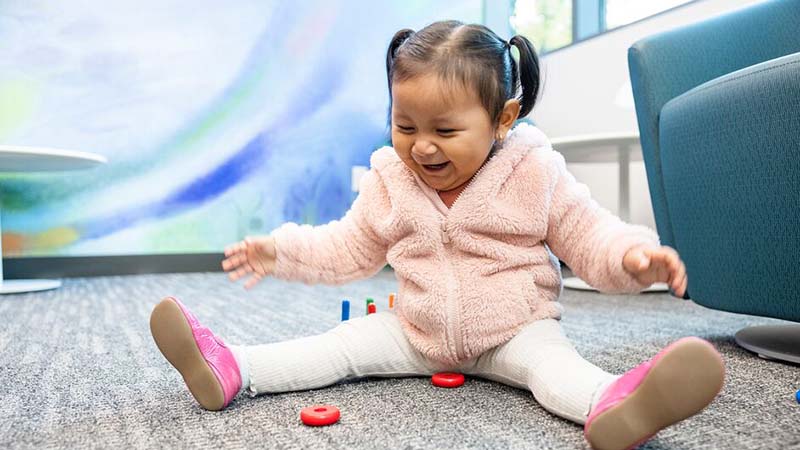Therapies for Challenging Behaviors
What are therapies for challenging behaviors?
To help children with autism spectrum disorder change problem behaviors, we use evidence-based therapy called applied behavior analysis (ABA). We work with parents and other caregivers to assess how your child acts and the purpose of their behavior. For example, the behavior might get your child something they want, like attention. Or it might help your child avoid something they do not want, like a noisy classroom.
Then we make a treatment plan and teach skills to help reduce your child’s problem behavior. Appointments are at Seattle Children’s Autism Center.
RUBI Parent Training Program
Our current program, RUBI, is a training program for parents and other caregivers of children ages 3 to 10 with autism and mild-to-moderate behavior problems. We work 1-on-1 to teach you ways to reduce your child’s problem behaviors and improve daily living skills, such as self-care and helping around the house. Experts in the RUBI Autism Network have created and tested this step-by-step training. RUBI stands for Research Units in Behavioral Intervention.
-
Who can RUBI training help?
This program is for parents and other caregivers who have a child:
- Between 3 and 10 years old
- Diagnosed with autism or related developmental disabilities
- Who has problem behaviors that get in the way of daily life
- Who can follow simple, 1-step instructions
We help with behaviors like:
- Hitting, kicking and biting
- Tantrums and meltdowns
- Screaming
- Not doing what you ask (noncompliance)
This program is NOT a good fit for children who:
- Mainly need to address self-harming, severe aggression, eating nonfood items (pica) or running or wandering off (elopement)
- Only need to increase language skills, play skills or social skills
- Only have problem behaviors at school
-
What can I expect at RUBI training?
RUBI is an outpatient service. You and a therapist will work 1-on-1 in weekly 1-hour sessions for up to 13 weeks. Your child only attends the first visit. It is best if the same adults attend each week. The program has the best results when caregivers make the time and effort to learn the skills and practice them at home.
We explain why kids behave the way they do. Sessions also cover how to:
- Prevent problem behaviors from happening
- Promote positive behaviors in your child
- Respond to problem behaviors more effectively
- Teach your child new skills that can replace a problem behavior
- Make positive behavior changes last over time and work across situations
We will work with you to schedule a regular day and time for your visits. One month after you finish the program, you will have a follow-up visit.
-
Who is on the RUBI team?
The RUBI program at Seattle Children’s is run by Karen Bearss, PhD, a leading expert in treating challenging behaviors in children with autism. Dr. Bearss supervises a team of therapists who work with families.
Scheduling an Appointment
- If your child is already being seen at Seattle Children’s Autism Center, ask your child’s therapist to refer you.
- If your child is not a current patient at Seattle Children’s, ask your child’s primary care provider or mental health provider to place a referral for RUBI Parent Training.
- When we get the referral, we will place you on our waiting list. When a space opens, we will contact you to set up your first visit.
Contact Us
Learn more about how to get services at the Autism Center.
Providers, see how to refer a patient.
Paying for Care
- We bill you or your insurer for each session.
- It’s always best to call your insurance plan to check your benefits. Find out if they cover the cost of the program and how much you need to pay if the full cost is not covered.
- The procedure code billed for RUBI Parent Training sessions is 90846. This is “family therapy without patient.”
- Read about insurance and mental health coverage at Seattle Children’s.
- Learn more about paying for care at Seattle Children’s, including billing and financial assistance.
